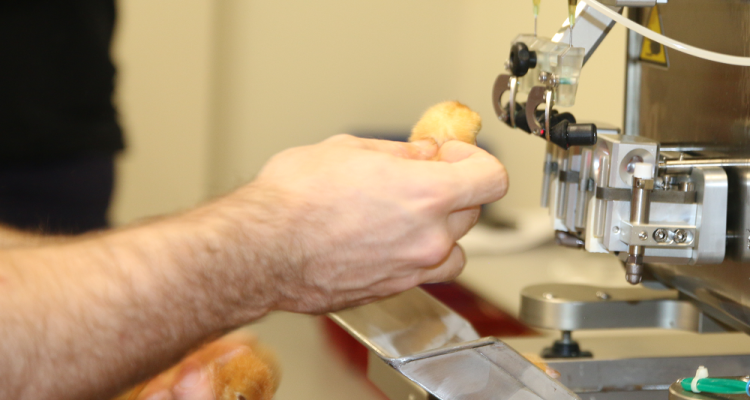1,800 day-old chicks have been vaccinated against highly pathogenic H5N1 bird flu in a new trial in the Netherlands. It is the first stage of a new field trial, which is taking place at Wageningen Bioveterinary Research (WBVR) on behalf of the Dutch Ministry of Agriculture, Nature and Food Quality (LNV). It is an important step toward large-scale vaccination of poultry against the bird flu virus, researchers at the university said.
Previous research in the laboratory at WBVR has shown that two vector vaccines against highly pathogenic avian influenza are effective against spreading the virus. The ministry is now having Wageningen University & Research (WUR), Royal GD (Animal Health Service) and Faculty of Veterinary Medicine at Utrecht University investigate whether these two vaccines are also effective on poultry farms.
At the start of the field trial, chicks are divided into several test groups. At regular intervals, a number of chickens from the field trial will be tested in the laboratory, under controlled conditions, to investigate the effectiveness against infection.
The trial on the two farms will last until the third quarter of 2025. First results are expected in the second quarter of 2024. Under field conditions, the effectiveness of a vaccine may differ from controlled conditions in a laboratory. For example, at a poultry farm, the housing and barn climate are different, the animals are vaccinated against more diseases, and there are other germs present in that could influence the effectiveness of a vaccine. It is important that the vaccines not only provide protection against disease symptoms, but mainly prevent the spread of the bird flu virus.
In addition to the field trial, a pilot will be conducted to vaccinate a larger number of poultry farms in the Netherlands. The pilot is expected to take place on several poultry farms in the second quarter of 2024. The condition is that the vaccine has European approval by then and that the results of the first laboratory test are known.
The pilot will also pay close attention to the effects of vaccination on poultry trade and the establishment of a surveillance programme. That surveillance programme is to detect any infection on a vaccinated farm, something that might happen despite vaccination, as soon as possible.


